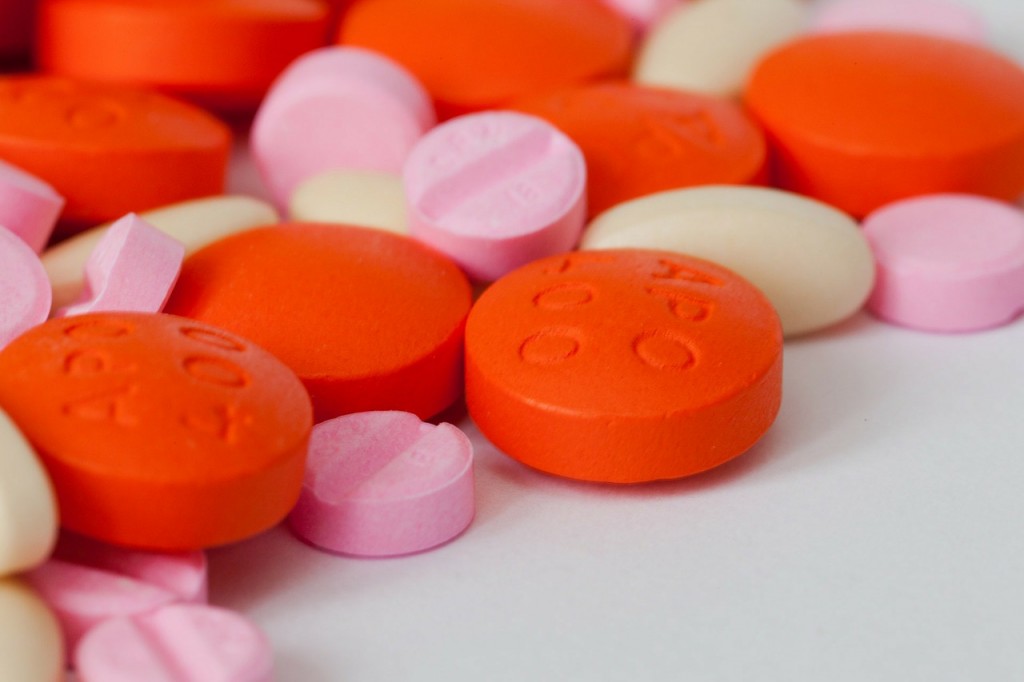OPERATIONS UPDATE: 1/27/26 BWS, Inc. is back to full operations. Please contact us with any questions or concerns about your scheduled pick up - (410) 437-6590 or customercare@bwaste.com
What You Need to Know About Pharmaceutical Waste Management

Whether you run a hospital, an emergency care clinic or a pharmacy, you have to deal with pharmaceutical waste. This could include expired pharmaceuticals, bags and vials containing traces of a toxic drug, or pills and liquids that spilled or were spit out by a patient. Of course, there are many other types of waste produced by a pharmacy, such as product packaging, personal protective equipment, etc. But in this article we'll use pharmaceutical waste to imply mainly pills, vaccines, ointments and related medications used for treating patients or medical research. Proper collection and disposal of pharmaceutical waste is crucial, because it poses a big risk to the environment and people. If hazardous or bio-active substances are allowed to enter our ground water or water treatment plants, they may lead to adverse effects in humans, animals and plants on a molecular level. As this Yale article points out, the environment is already polluted with the pharmaceuticals we use to medicate ourselves, our pets and livestock. As a medical facility, it's your duty to ensure proper collection and disposal of pharmaceutical waste, whether it's a single vial or an entire case.
Classifying Pharmaceutical Waste
Pharmaceutical waste is a broad category that encompasses many different waste items produced during day-to-day operations of a pharmacy or a healthcare facility. These items may belong to the following medical waste categories based on their toxicity and disposal requirements:
- RCRA hazardous waste, specifically P-listed and U-listed substances (chemical products that pose risk to the environment and human health).
- Substances that are not specifically listed as RCRA hazardous waste, but that possess similar characteristics and should be treated as hazardous.
- Infectious waste includes things like live vaccines and blood products.
- Controlled substances that fall under the DEA regulations.
Separating Hazardous and Non-hazardous Waste
One of the biggest challenges of managing pharmaceutical waste is separating RCRA hazardous waste from non-hazardous waste. This is crucial in order to ensure proper collection and disposal. As we've mentioned, RCRA hazardous substances are divided into several lists that you can check with. However, new substances get developed faster than these lists are updated, so you can't rely on them completely. If a substance is not on one of the RCRA lists, look for the following qualities that RCRA has selected to help identify “characteristic hazardous waste.”
- Ignitability—often a solution containing 24% alcohol or more and has a flash point less than 140 degrees F.
- Corrosivity—has a pH of 2 or lower or 2.5 or higher.
- Reactivity—unstable substances that react with basic elements, such as water, and produce harmful byproducts.
- Toxicity—mostly heavy metals that may be above maximum concentration.
Feel free to click on the links and print out the full definitions provided by the EPA. If one or more of these characteristics are present in a pharmaceutical, treat it as hazardous.
Disposal of RCRA Hazardous Waste
RCRA hazardous waste is not the same as infectious or biohazardous waste, and therefore shouldn't be collected in red bags. It's typically collected in large drums or smaller black bins with secure lids. Because hazardous waste can be reactive and corrosive, it's important to choose the right container and place a label identifying whether the waste is flammable, toxic or otherwise dangerous. Some unopened or partially used pharmaceuticals may be eligible for shipping back to the manufacturer. Never dispose of liquid RCRA hazardous waste by pouring it down the drain. Most water treatment facilities are not equipped to remove these kind of contaminants from water. RCRA hazardous waste needs to be collected by your Maryland medical waste management company and transported to an RCRA-approved facility for disposal. This type of waste was traditionally incinerated before being placed in a landfill, but the EPA has recently proposed new regulations to require 100% incineration.
New EPA Regulations
As we mentioned, the EPA has recently proposed new management standards for hazardous waste pharmaceuticals. The goals of these standards are to protect waterways and drinking water supplies from contamination with pharm waste, as well as protect the public from mismanagement of hazardous waste. If enacted, these new standards will apply to any healthcare or similar facilities that deal with RCRA hazardous pharmaceutical waste. What this means to you:
- You will be required to follow subpart P of 40 CFR part 266 (the new rule), instead of 40 CFR part 262 (the current rule).
- Pharmaceuticals that are not eligible for manufacturer's credit (non-creditable) can be managed on or off site. When managed off site, they should be accompanied by the hazardous waste manifest.
- Pharmaceuticals that are eligible for manufacturer's credit (creditable) can be shipped to the manufacturer.
- Disposal of RCRA pharmaceuticals by pouring down the drain or toilet will be prohibited.
- Hazardous pharm waste managed under this rule won't count toward determining your status as a small-quantity or large-quantity generator.
- Pharmaceuticals that are also controlled substances under DEA may be exempt from this rule.
- There will be new rules for managing trace hazardous waste (residue left in containers).
As always, you can rely on BWS, Inc. to keep you up to date on any new regulations.
Educate Your Staff and Patients
Make sure your staff knows how to separate different kinds of pharmaceutical waste and which containers to use. This will not only ensure proper disposal, but also help prevent unnecessary exposure to potentially harmful substances. And don't forget to educate your patients about what they should do with their unused or expired medications. You could even implement a “send back your unused pills” program to offer your patients an easy solution. Have any other questions about pharmaceutical waste disposal? Feel free to contact BWS, Inc. and we'll be happy to clear up any confusion, provide proper containers or offer professional advice.
Ready to get started?
We offer a variety of competitively priced service options with no contracts or hidden fees. Request a free quote.
Our Dedication to Providing the Highest Quality Regulated Waste Services
is Shown in What Our Clients Say About Our Work
We provide an outstanding value and service to our regulated waste customers and pride ourselves over the last 50 years on our 100% customer satisfaction with 99% customer retention ratio.
Paul R Miller, D.D.S. and Team
ZytoGen Patient Services
Akbar Masood, D.D.S.
Chris Donaldson
Dharani Jasthi
Tomicka Jackson-George, D.M.D.
Louis Sachs, D.D.S.
Kate Blair English
Dave Ryan
Kerry Owens, Avalon Plastic Surgery
Jamie Fleming, National Spine & Pain Centers
Keith Roberts, Biomatrix Specialty Pharmacy
Mireia Pedragosa Marin, Synergy Research
Rebecca Crouse, Randolph Macon Academy
Melissa C, Patriot Chiropractic
Dr. Rosario Ignacio
Dr. Thomas Lutz, Odenton Family Dentistry
Dr. Louis Sachs, DDS
Eric B.
Brenda Shah
Stay connected - Be the first to know!
Get BWS news and promotions straight to your inbox
Don't worry. We won't sell your information!




